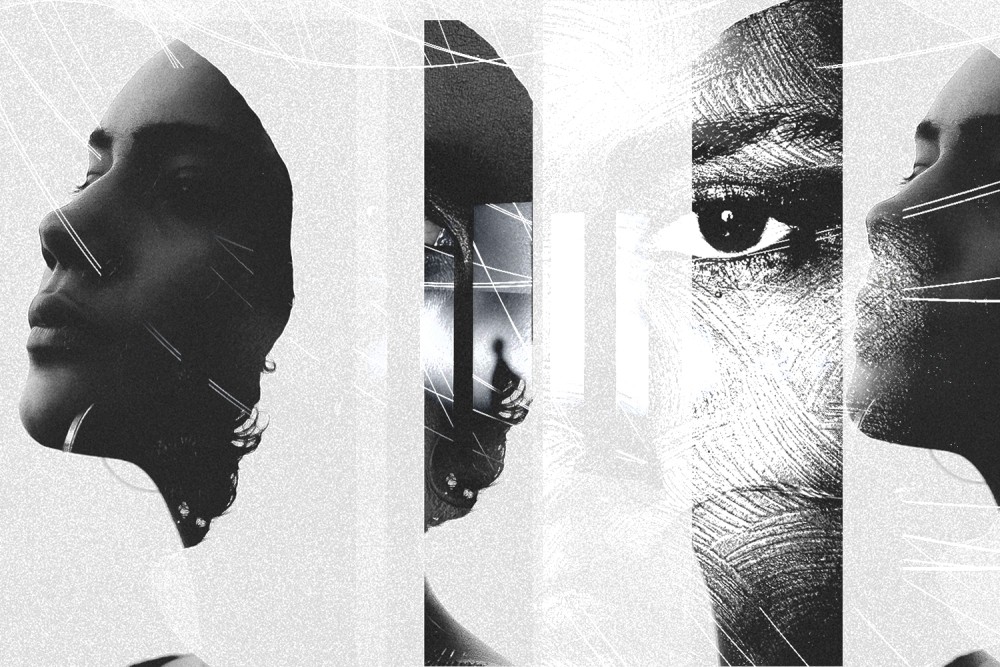White supremacy shows up in unexpected places
Supremacy feels so good on the inside that we are all vulnerable to its sirens.

Century illustration (Source images: Unsplash)
The first White supremacist I ever met was my grandmother.
While many of you can perhaps relate to that experience, it’s a strange sentence for me to type as a Black man. She was Black, too, and at some point in the history of domination—or love or folly, perhaps—her bloodline was mixed with both Chinese and Creole in such a way that she was able to pass, to live her public life as a White woman. She looked White—at least to White racists of the Deep South, who are perpetually foolable—and so she spent her childhood getting along in the Jim Crow South, because Jim Crow is and always will be an ignoramus.
In the South, there are different classes related to passing. There are people who can’t pass but want to, those who can but don’t want to, those who neither can nor want to, and finally those who can and want to and ultimately do. My grandmother was able to pass, and because it made life easier for her family, she did. The ethics of such a decision might make good conversation fodder for you and your own family—she’s dead anyway, so go for it—but know this: “making life easier” was the primary decision-making metric my grandmother had as a young Black girl.
Read our latest issue or browse back issues.
Fast-forward and she’s in Chicago, has made a fascinating living (one of the first hostesses for the brand-new Playboy Club!), and has a sprawling family—which includes a young grandson named Julian, who is also ethnically indeterminate in appearance to ignoramuses. My grandmother had developed the characteristic tics of someone who had learned to hate her own Blackness in order to survive: she regarded coarse hair, dark skin, and street talk as “unkempt” and destined to hold you back. This from a woman who genuinely loved her people and who had a saltier tongue than any adult I’ve ever known. It’s complex.
My first girlfriend was a beautifully chocolate woman, and my grandmother simply did not like her. I could not make sense of it, and she did not make an effort to explain it to me. Only years later would I hear her painful origin story and learn of the prejudices she could not shake.
The second White supremacist I ever met was a White member of my own congregation: a diverse, liberal, and all-around nice place on the South Side of Chicago. (There’s also a university nearby, which completes the “Christians who want to change the world” starter pack.) This person was and is a good person among good people. However, they had a vision for justice and what it takes to get there, and they could be fairly unreasonable—sometimes outright hostile—toward anyone who goes about it differently.
And so I have been condescended to, told I’m not good enough, and questioned and corrected during most of our encounters—but always under the guise of helpfully teaching me something, so, you know, regular pastor stuff to deal with. I did not ask for this and have no interest in it, though I am on occasion curious about what motivates a White person to lecture a Black person on what they need to do for their own liberation. Sometimes I feel sorry for them, because I know they deeply want to get it right but are in fact getting it horribly wrong, and I can relate to that tragedy of the human condition. So, too, could my grandmother.
When I related this experience to a confidant, I did not expect the reply I received: “Sounds like they are a White supremacist.”
I hadn’t considered that a “good” White person could have anything besides ethnicity in common with those Jim Crow enforcers past and present. But a White supremacist is someone who believes they are right about who they are and won’t entertain any other possibilities, not even clear evidence to the contrary. They are marked by both exceptionalism and intolerance—the exact characteristics of the way this church member was performing their relationship with me.
Supremacists believe not only that they are superior but that they and their ideas should dominate. Their favorite phrase is “This is the way we should be doing it,” and their favorite lament is “I wish this were happening differently.” No curiosity, no seeking to understand, no pursuit of the delicate harmony between discordant voices and practices that is so crucial in all communities—and even more so in the beloved community. When the supremacist doesn’t get their way, they throw tantrums, like that beloved church member did. They shut down emotionally, like my grandmother did when I didn’t break up with my girlfriend right away (all she had to do was wait; we were teenagers!). They become victims of their own intolerance, slaves to a past that helped them survive but no longer serves them well.
In the gospels, Jesus shows love toward his enemies in ways that many of us might call soft or naive if it were someone other than Jesus. But he’s right: when we fight against evil, we have to be careful not to let a piece of that evil make its way into our own practice. Supremacy’s ethics are universal, and its aim is all-consuming. It doesn’t matter if you’re “one of the good ones” or even if you’re Black. Supremacy feels good enough on the inside to make all of us vulnerable to its sirens. It feels good to be certain that we are right and that they are wrong and therefore must be defeated; it feels good to be sure we are on the right side of history. But we will not beat White supremacy with more supremacy, not even the good Christian kind.
I lift a glass to my grandmother, to the strength and self-assurance that she needed and we all need. And I remember as well the ways these things can get in our way if we aren’t careful.







